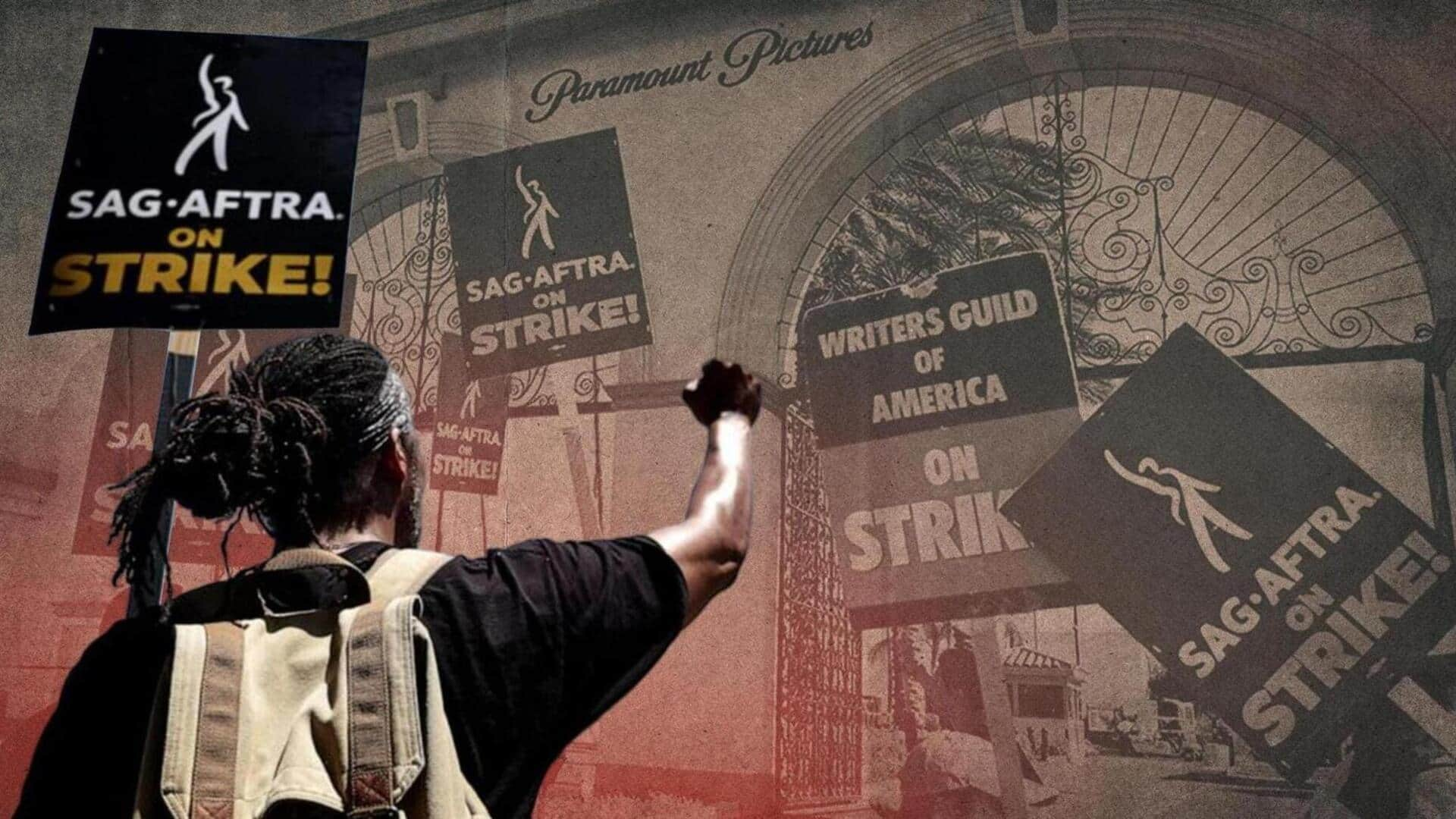
Hollywood actors' strike ends: Breaking down new SAG-AFTRA contract terms
What's the story
The Screen Actors Guild-American Federation of Television and Radio Artists (SAG-AFTRA) National Board has approved a tentative agreement with Hollywood studio heads, concluding a nearly four-month-long actors' strike that began in July. The contract addresses key concerns like securing higher minimum pay, enhanced residual payments for streaming shows, crucial protections regarding self-taped auditions, and the use of artificial intelligence (AI) in filmmaking. Here are the key highlights of the new contract's terms.
Context
Why does this story matter?
Following negotiations between the guild's committee and the Alliance of Motion Pictures and Television Producers (AMPTP), the tentative contract came under review by the SAG-AFTRA National Board. The approval on Friday (local time) sets the stage for the final hurdle: ratification by guild members. The voting process, beginning Tuesday (local time) and extending into the first week of December, will determine the fate of the three-year contract. Key gains from the agreement were disclosed during the announcement at SAG-AFTRA headquarters.
#1
Wage increases, new compensation stream for performers
The contract includes over $1B in new wages and funding for benefits over three years. SAG-AFTRA's chief negotiator Duncan Crabtree-Ireland said immediate benefits include a 7% general wage increase, an additional 4% to take effect on July 1, 2024, and another 3.5% on July 1, 2025. Background actors will receive an immediate 11% increase, followed by 4% and 3.5% in the second and third years, respectively. These first-year boosts reportedly surpass those received by the writers' and directors' guilds.
#2
AI negotiations: Safeguards from unauthorized use of 'digital replicas'
The use of AI in filmmaking became a focal point in the negotiations' final hours. The agreement now stipulates that studios must seek an actor's consent before employing their image to generate a "digital replica." Background performers are also safeguarded from the unauthorized use of their digital replicas. The contract mandates companies to secure consent from performers whose facial features contribute to the creation of "synthetic performers," even if multiple performers' features are involved.
#3
Casting revolution: New contract establishes meaningful protections for performers
The new contract also reportedly introduces significant safeguards for the casting process. Scripts must now be provided to talent at least 48 hours before the submission deadline, with a 72-hour requirement for minors. Moreover, performances are limited to eight industry-standard pages for a first self-tape audition and 12 pages for subsequent callbacks, with compensation for memorization if required. Explicit protections are in place, prohibiting requests for nudity or attire more revealing than a public pool bathing suit.
#4
Hair and makeup equity; intimacy coordinators
The contract marks significant progress in hair and makeup equity and inclusivity. The deal eliminates inappropriate practices like "wiggings and paintdowns," the adoption of "gender-neutral language," improved "access to gender-affirming care," and "translation services." The agreement also strengthens sexual harassment prevention measures, with the use of intimacy coordinators in the filming of scenes involving nudity or simulated sex.
#5
Streaming bonus to operate on show's reach: Guild chief
SAG-AFTRA President Fran Drescher announced a new streaming show bonus fund. If a show captures 20% of an OTT platform's subscribers over three months, actors become eligible for a bonus. However, instead of the entire sum going to individual performers, the extra funds will reportedly be pooled into a jointly administered fund by the union and the AMPTP. Approximately $40M annually is anticipated for the fund, with 75% allocated to actors on high-performing shows and the rest to other actors.
Twitter Post
Crabtree-Ireland details on key points of agreement: Take a look
Tentative Agreement Update 🎬 SAG-AFTRA Chief Negotiator Duncan Crabtree-Ireland breaks down some key points of the new 2023 TV/Theatrical Contract. More details to come at https://t.co/qtezCsrzzs. pic.twitter.com/GvRy0HXQyh
— SAG-AFTRA (@sagaftra) November 11, 2023